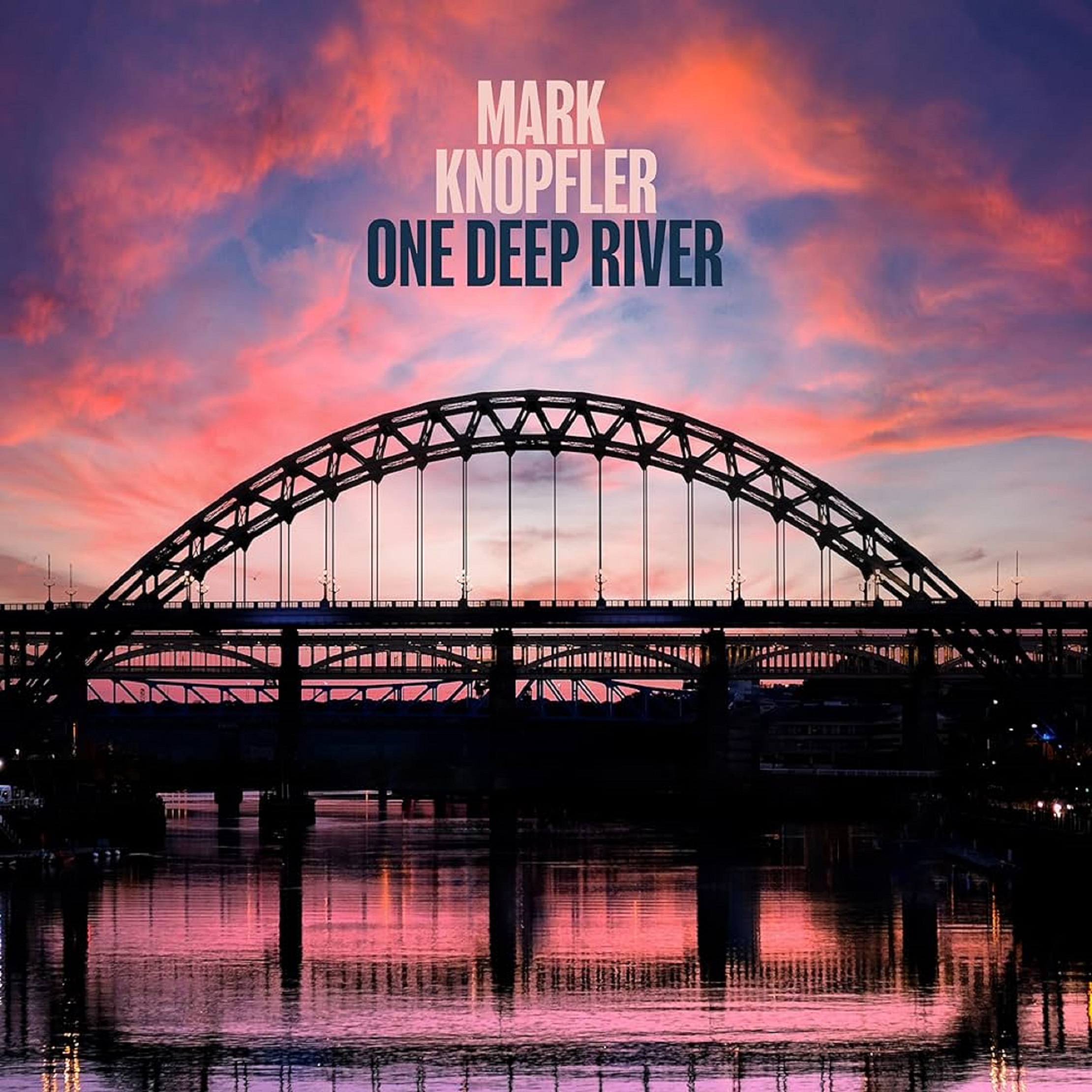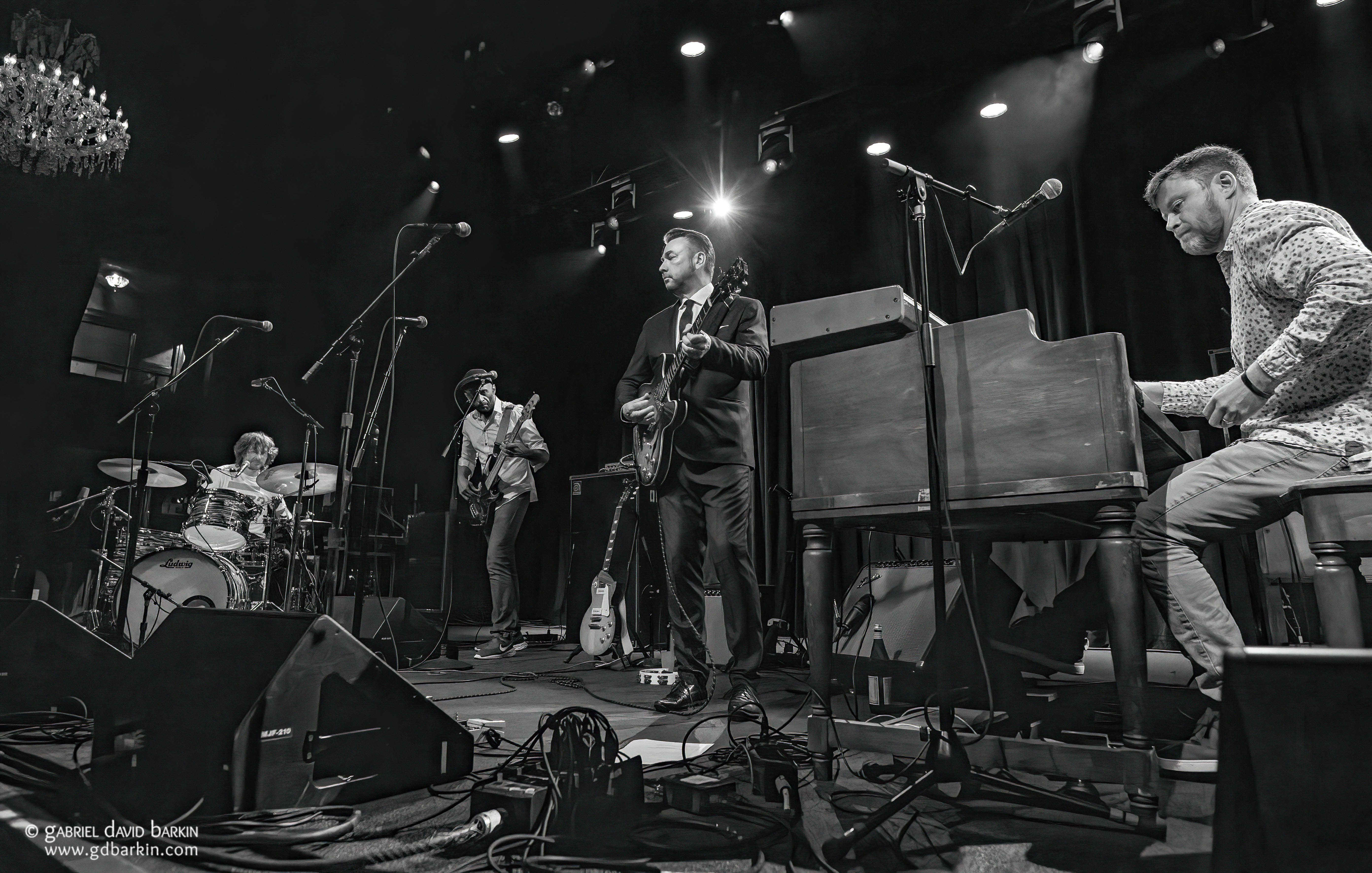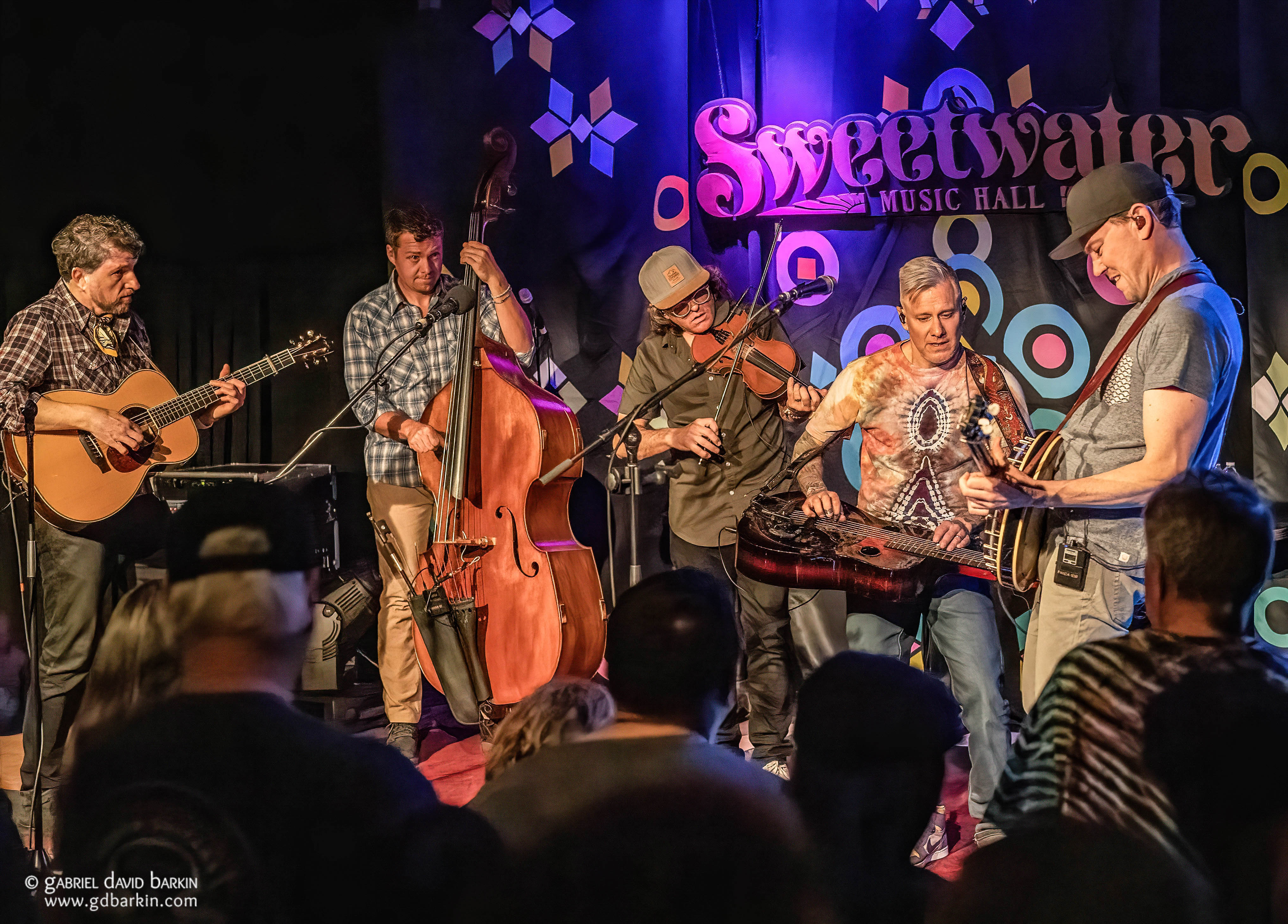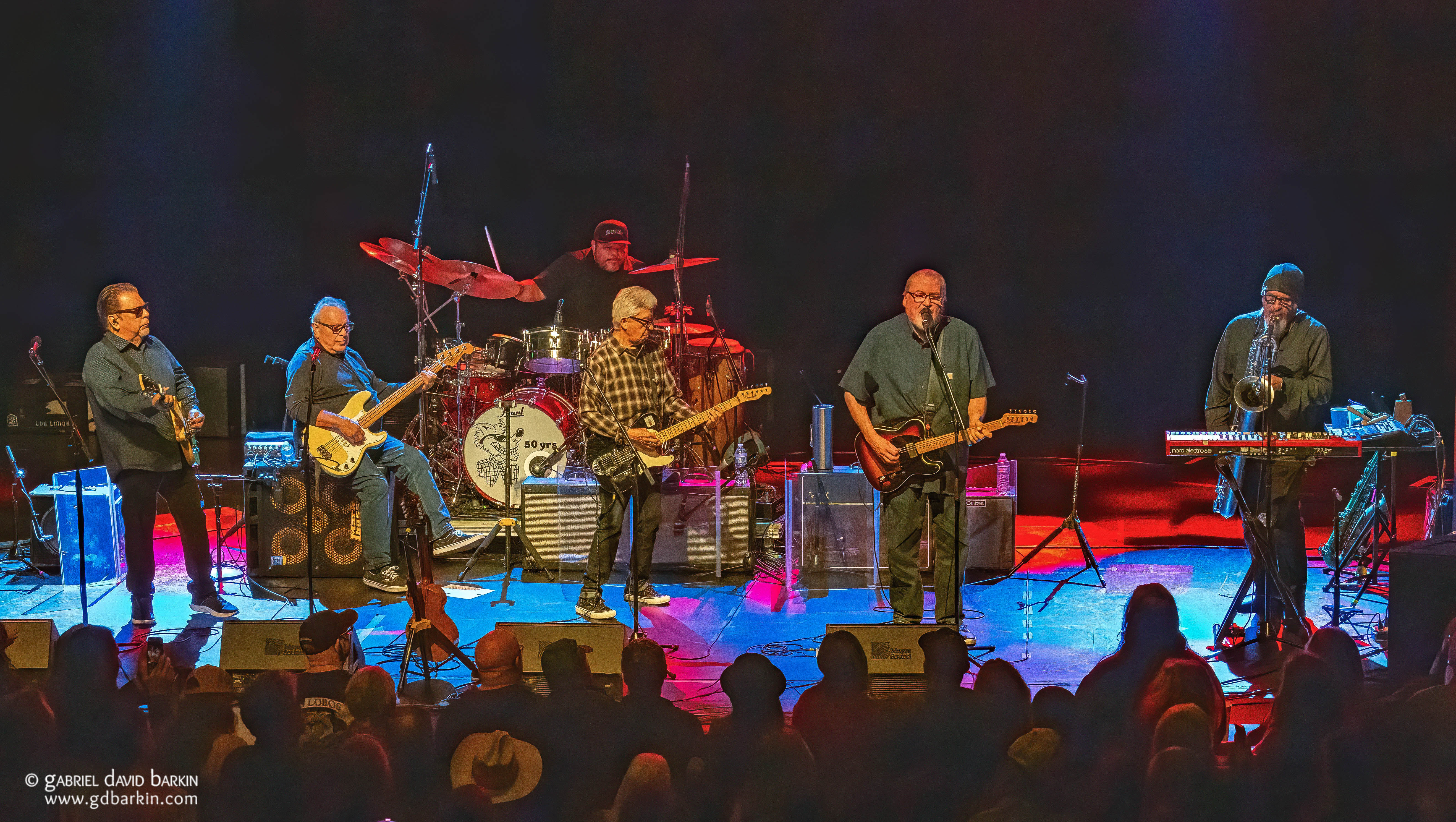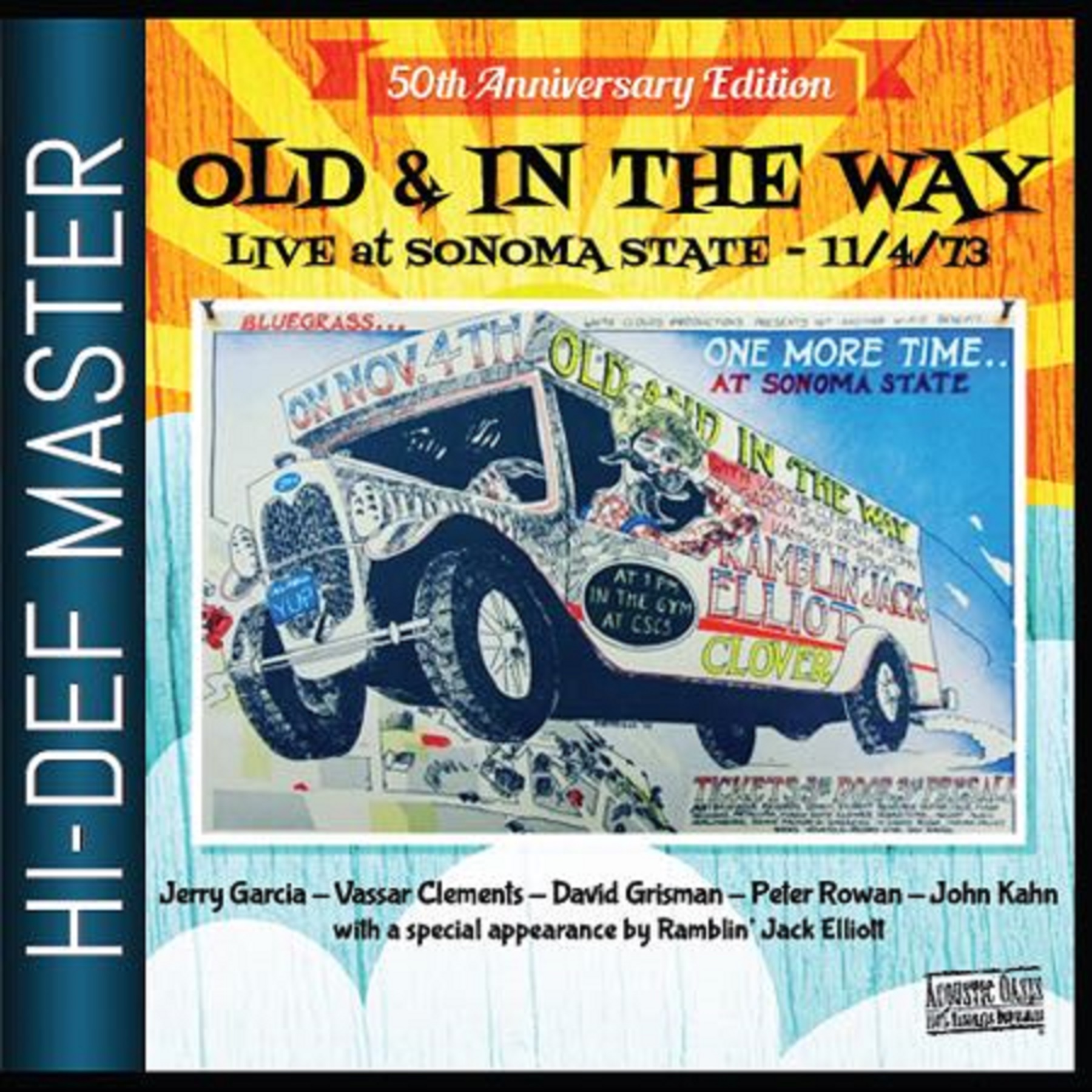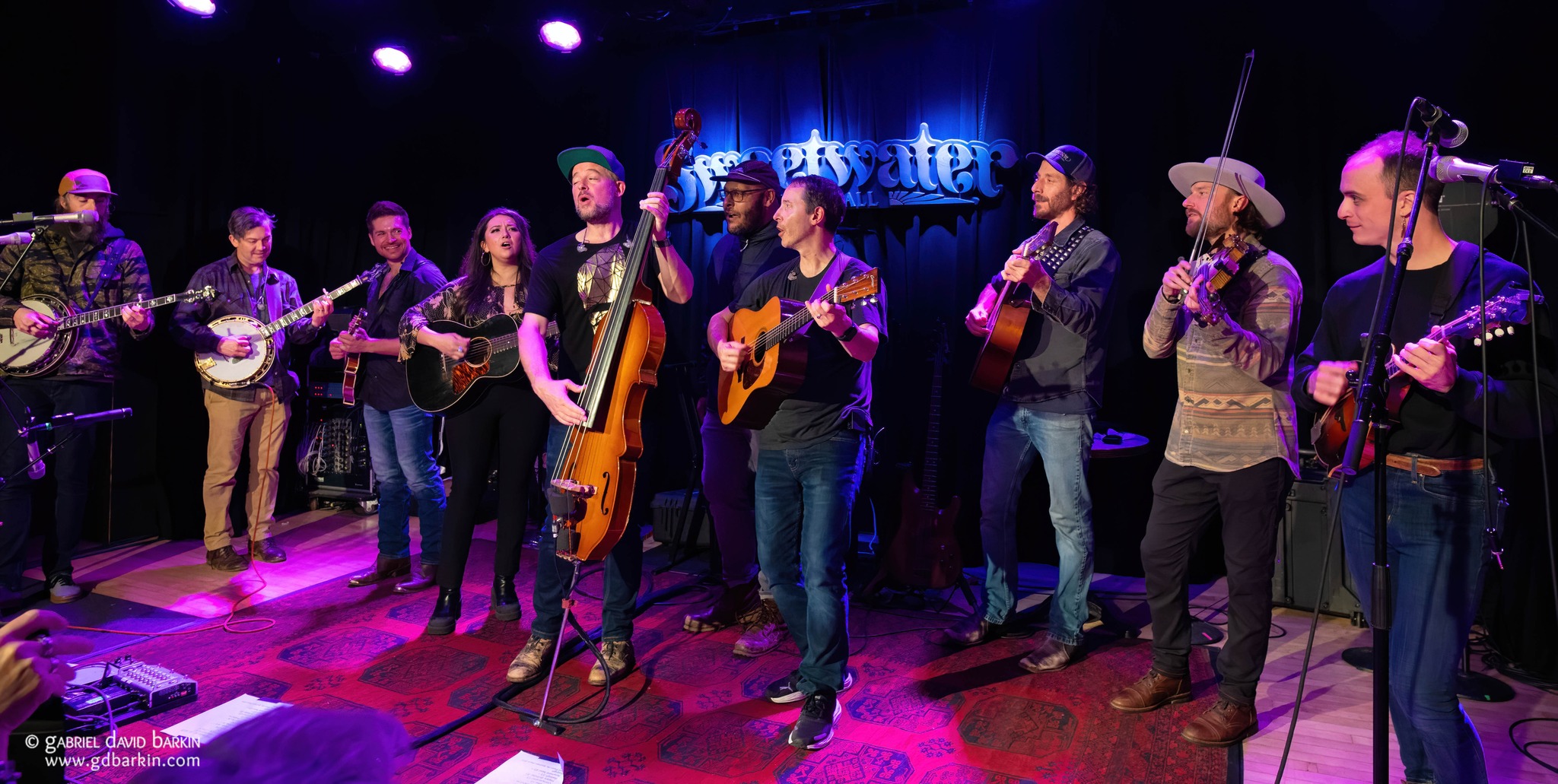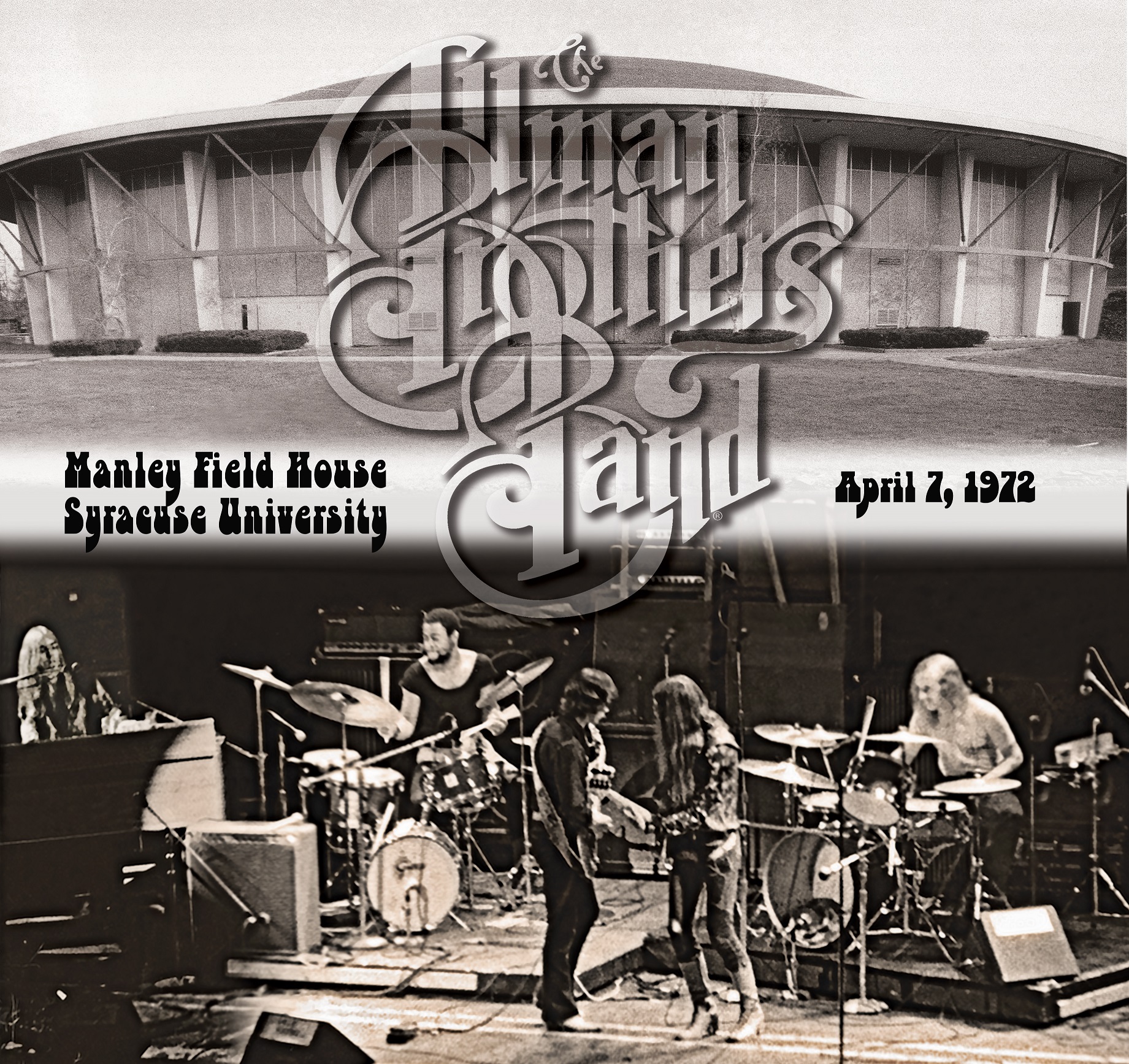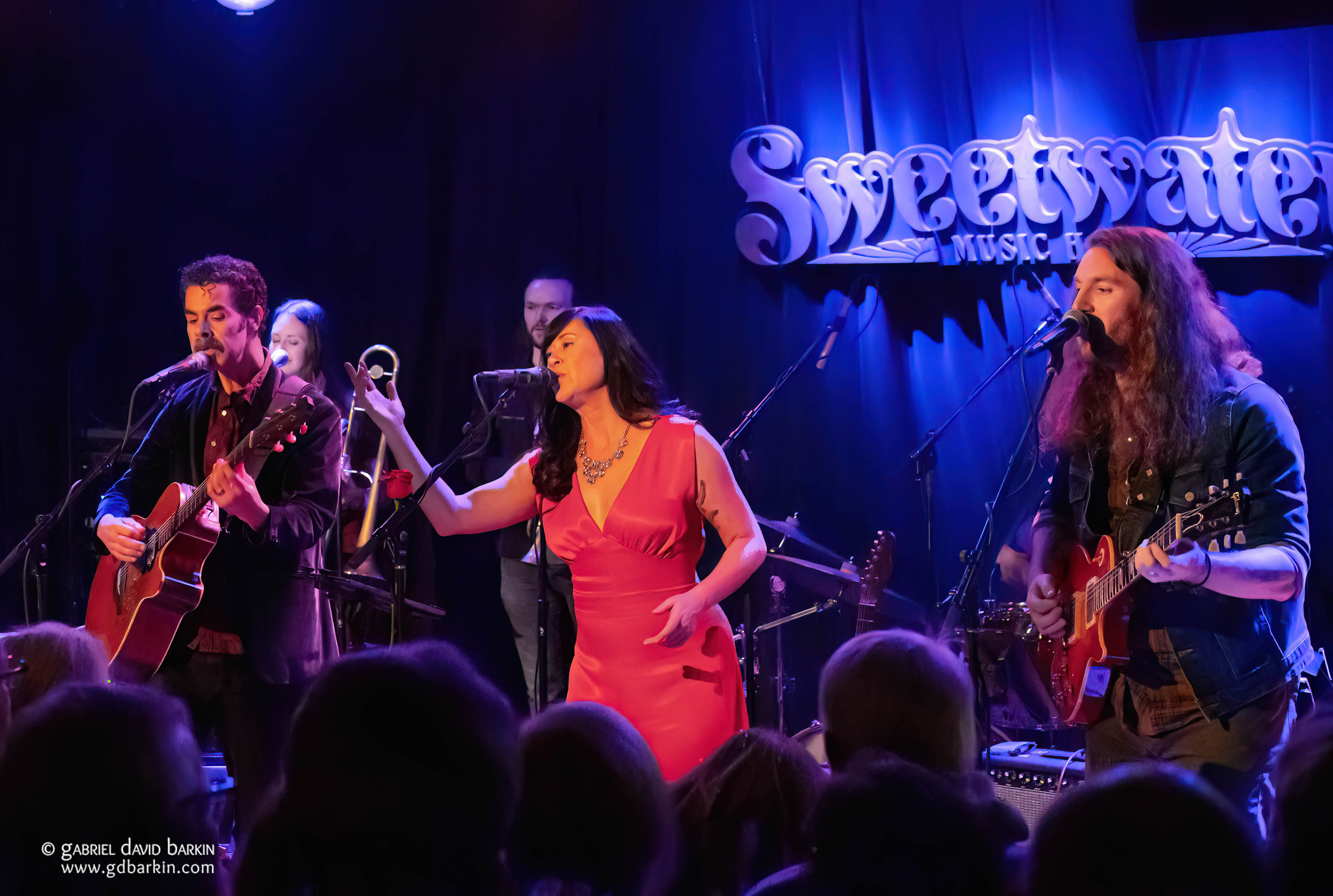Mark Knopfler’s voice never sounded young. The Dire Straits frontman was in his late twenties when the timeless hit “Sultans of Swing” took over the airwaves in England and the U.S. in 1978. It was easy then to imagine the singer was himself a member of the storied bar band of which he sang; a time-tested musical soul-blowing Dixie double four time in a local dive bar decade after decade.
With over 40 years in the rearview mirror, Knopfler’s 10th solo album One Deep River underscores the timelessness of his voice as well as the depth and poignancy of his songwriting. One Deep River also continues Knopfler’s masterful string of bluesy British Americana – he may hail from the U.K., but few classic rock artists have traversed the landscape of the former Colonies with equal aplomb. Elvis Costello’s comes to mind in a similar “Brit’mericana” vein.
One Deep River was produced by Knopfler and his longstanding collaborator Guy Fletcher and recorded at his own studio in London. All the songs were written by Knopfler. The album will be released by Knopfler’s British Grove label via Blue Note/EMI on April 12. Options for purchase will include CD, a double gatefold vinyl, cassette, and a special limited-edition box set (which will include the album on both vinyl and CD with nine exclusive bonus tracks on LP and CD, plus a litho print of Knopfler, a guitar pick set and tin and an enamel badge).

'Take note: if you are a Dire Straits fan looking for guitar wizardry and fast-picking jams like “Sultans” or “Telegraph Road,” keep strolling – or better yet, take time to let One Deep River seep into your soul. Knopfler’s latest, like most of his solo catalog, is closer to Strait, George than it is to Straits, Dire. (For the record, Dire Straits only released six LPs; this, however, is Knopfler’s ninth solo record since leaving his Dire Straits days behind in 1995. His entire solo catalog is worth a listen.)
“Two Pairs of Hands” kicks off the new album with a few instantly recognizable Knopfler licks. Over a lazy JJ Cale-ish shuffle, Knopfler says he’s “Keeping balls in the air, trying to keep up with the band.” It’s clear however that Knopfler isn’t lagging. “Two Pairs of Hands” sets the tone for the album, a collection of lyrical tunes appreciated more for Knopfler’s voice and words than for his licks.
Even so, it’s worth noting the excellence of the band accompanying Knopfler. Jim Cox and Guy Fletcher play keys, Glenn Worf provides the bass, and Ian Thomas and Danny Cummings add the drums and percussion, respectively. The instrumentation is rounded out on various tunes with Richard Bennett on additional guitar, Greg Leisz on pedal and lap steel, Mike McGoldrick on whistle and uilleann pipes, and John McCusker on fiddle. The Topolski sisters, Emma and Tamsin, add backing vocals.

Opening track “Ahead of the Game” comes out of the dock with pistons pumping. It’s a rolling riverboat of a song that chugs downriver with a steady heartbeat. Next comes “Smart Money,” one of the album’s best tracks – a soft lilt that sprinkles a melody like summer rain landing on a porch roof. The pedal steel in the middle and the accompanying piano sweeten the pot, but it’s the lyrical hook that makes this one an earworm: “The smart money ain’t on your dog now.”
“Tunnel Thirteen” picks up where Dire Straits’ “Telegraph Road” … began. This tune leaves the station at a slow and steady pace. It never picks up speed, but the tale is full of steam. It’s the longest track on the record, and it tells of “three bandits waiting, with evil in mind” who are “still jumping freight trains … a hundred years later.” (Trains are a frequent topic in Knopfler’s Brit’mericana oeuvre; another track on One Deep River is “Before My Train Comes.”)
Like many of the tracks on this record, "Tunnel Thirteen" is Knopfler recounting how the more things change, the more they stay the same. Even the outro instrumental part keeps the pace, a haunting melody defined more by a refrain of steady and somber harmonies rather than ferocious guitar licks kicking up dust.
Like much of the record, “This One’s Not Going to End Well” is front-porch lazy day music, but with lyrics that underscore the album’s poignant theme of stability in the face of change:
This one’s not going to end well
But after he’s gone
The traders will trade
Flyers will fly
Seafarers will ride on the swell
The album is named after its closing song. Certainly, “One Deep River” might conjure the Mississippi for many listeners, but in fact, it refers to the river Tyne in Knopfler’s childhood home city of Newcastle, England. “Crossing the Tyne is always on your mind,” he says. “It’s what you were doing when you were leaving as a youngster and that feeling is always the same every time you do it. You’re heading out or you’re coming back, and it just connects with your childhood. The power of it doesn’t go away.”

Many old timers have said the same about the Mississippi and many other rivers.
In fact, the same might be said of Knopfler’s songs throughout his career: they’re what you were listening to when you were a youngster, and that feeling is always the same every time you hear it. From his Dire Straits days through several decades of solo albums, Mark Knopfler’s voice may sound like a faded pair of ancient jeans. It’s never grown old – it just is old, in a timeless, wise, and wonderous sense. It’s a voice many of us listened to for decades. And whether we’re heading out or coming back, the power of Knopfler’s storytelling hasn’t gone away.






